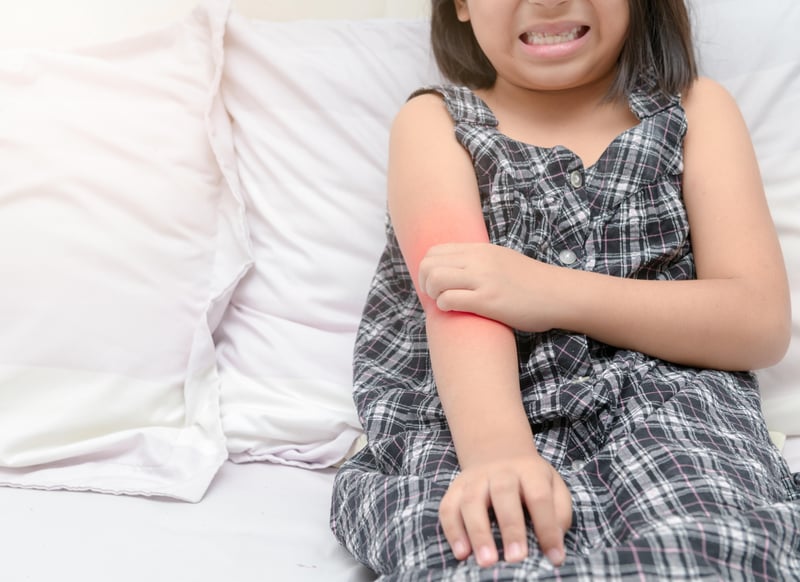Manténgase sano!

- Cara Murez
- Posted September 8, 2023
Is It Eczema or Psoriasis? An Expert Offers Advice
Eczema and psoriasis are skin conditions that can each affect a person's quality of life.
The best way to know which one you have if you have an itchy rash or burning feeling on your skin is to see an expert.
"Both eczema and psoriasis can impact your sleep, mood and quality of life, so it's important to seek help if you are struggling with these conditions,"said Dr. Catherine Emerson, a dermatologist at Rush University Medical Center in Chicago.
Understanding the differences between psoriasis and eczema can ensure that you're getting the right treatment and making choices that can help you avoid flare-ups.
Both conditions can appear as dry, flaky skin with itching or burning.
Both can emerge at any age, through eczema usually begins in childhood. It often develops along with allergic rhinitis and asthma. Together these conditions are sometimes called the "atopic triad."
Eczema tends to be itchier than psoriasis. It can appear inside the elbows and behind the knees.
"Itch is a defining feature of eczema,"Emerson said in a center news release. "In fact, it is often called 'the itch that rashes.' It can present as dry patches, bumps or even fluid-filled blisters."
While psoriasis can also cause itchiness, sometimes it doesn't.
It is marked by red, thick and scaly plaques with defined edges.
"Psoriasis classically involves the scalp, elbows and knees but can also involve skin folds such as in the groin or genital region, as well as the hands and feet,"Emerson said.
It's easy for a dermatologist to tell the difference between the two.
Genetics and environmental factors underlie both conditions. They also result from overactive immune responses that lead to inflammation.
"We think that eczema is related to a defective skin barrier that doesn't do a good job of keeping water in and irritants and allergens out,"Emerson said.
Both overly hot showers and harsh soaps that remove oil from the skin can cause eczema to flare up. Wool, fragrances in laundry detergent or perfumes can also be triggers.
Environmental factors increase the risk of developing psoriasis. Beta-blockers and drugs to treat malaria have been linked to psoriasis. Other medications, such as those used to treat depression and mental health issues, can worsen the condition, too.
Obesity, smoking and some infections can increase the risk of developing psoriasis.
People who have either eczema or psoriasis may experience disrupted sleep and mental health issues. Excessive scratching or dryness can also lead to breaks in the skin, which can lead to secondary infections.
The overactive immune response involved in psoriasis can lead to inflammation not just in the skin, but in other organs of the body. People with psoriasis are at higher risk for developing metabolic syndrome and arthritis, among other conditions.
"Psoriatic arthritis can develop in about 30% of individuals with psoriasis,"Emerson said.
It's important to get treatment for both conditions to prevent rashes and to protect overall health.
Treatments may begin with topical anti-inflammatory medications for mild cases of either condition. A dermatologist can prescribe these creams and lotions and explain how to use them and possible side effects.
A dermatologist may suggest switching to a less harsh soap and using moisturizer after bathing.
For more severe cases of either eczema or psoriasis, treatment options may include light therapy, oral immunosuppressant drugs or injectable medications.
Oral and injectable medications that treat both the skin and the joints may be prescribed for psoriasis patients.
"A dermatologist can talk with you about the benefits and risks of these different options and come up with a treatment plan that works for you,"Emerson said.
More information
The U.S. National Library of Medicine has more on skin conditions.
SOURCE: Rush University Medical Center, news release, Sept. 7, 2023
